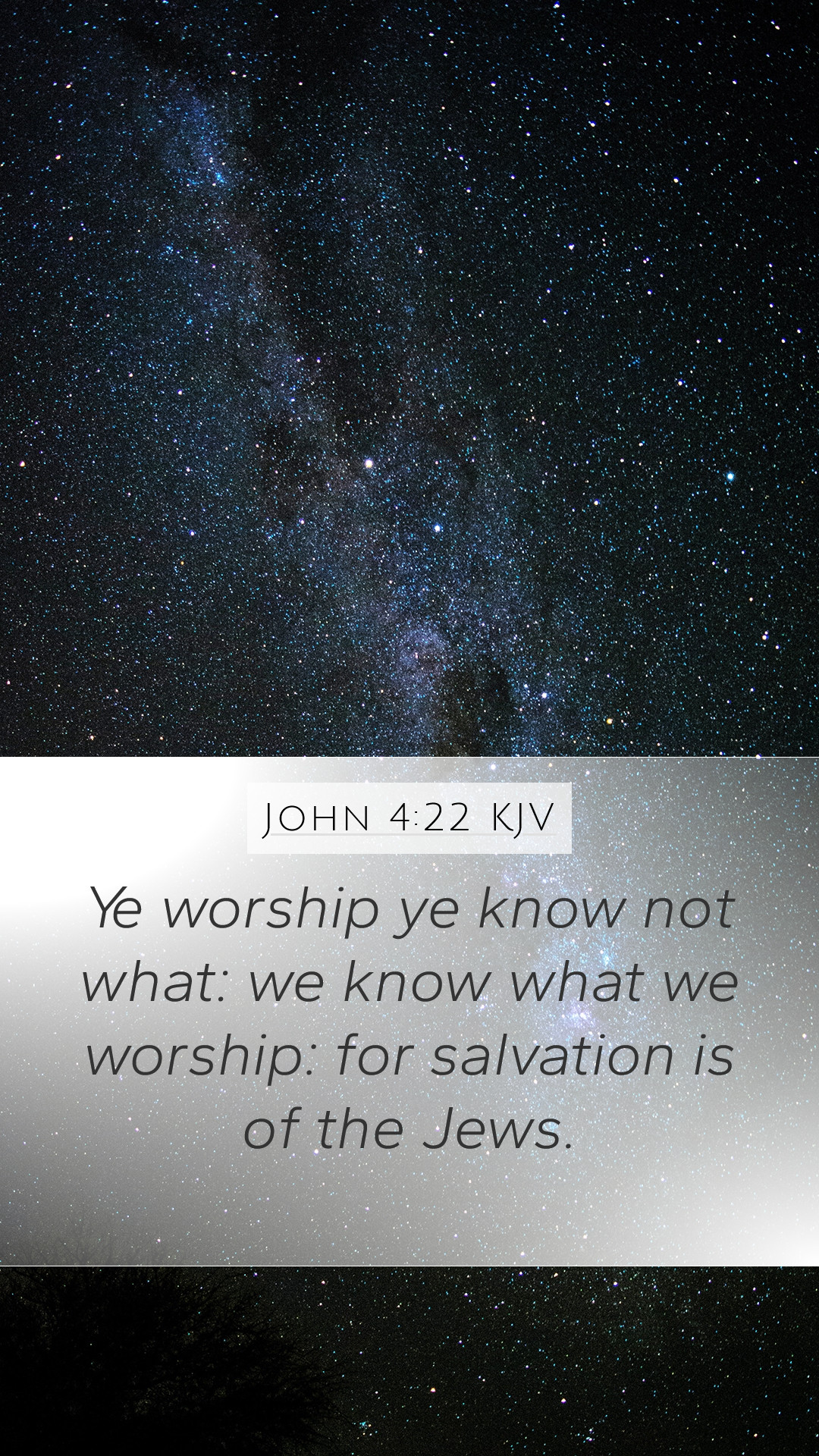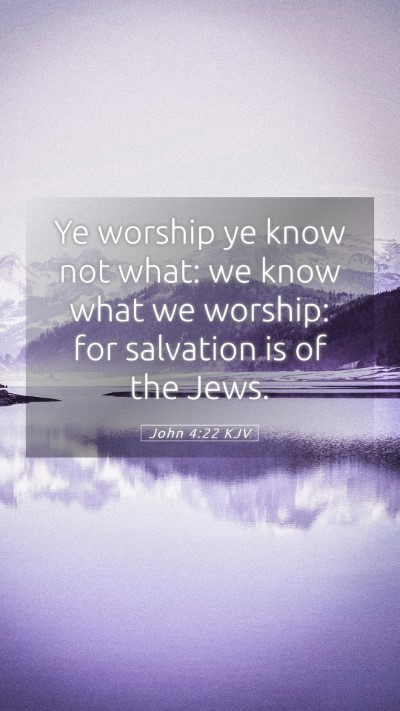Understanding John 4:22 - A Comprehensive Bible Verse Commentary
John 4:22 states: "Ye worship ye know not what: we know what we worship: for salvation is of the Jews." This verse, spoken by Jesus to the Samaritan woman at the well, holds profound theological significance. Below is a detailed analysis, combining insights from renowned public domain commentaries, including Matthew Henry, Albert Barnes, and Adam Clarke.
Context and Background
The interaction between Jesus and the Samaritan woman unfolds within a broader narrative that highlights the divide between Jews and Samaritans. The Samaritans had a corrupted form of worship and an incomplete understanding of salvation. Jesus addresses this division and the nature of true worship.
The Nature of Worship
In this verse, Jesus highlights that the Samaritans worship what they do not know. According to Matthew Henry's commentary, this reflects a lack of understanding and connection to the true God. Henry emphasizes that ignorance in worship leads to false practices, which directly contrasts with the proper understanding that comes from the Jewish faith, from which Christ arose.
Salvation Through the Jews
Albert Barnes points out that salvation is said to be of the Jews, indicating that the Jewish people were entrusted with God's revelations and covenant. This reinforces the importance of the Jewish heritage in understanding God's salvation plan. Barnes suggests that while salvation is available to all, it originates from the Jewish context, highlighting the importance of Jesus’ lineage and the fulfillment of Old Testament prophecies.
Spiritual Insight and True Worship
Adam Clarke's commentary reflects on the spiritual insight required for true worship. He notes that Jesus shifts the focus from location and rituals to a more profound relationship with God that transcends cultural boundaries. True worshipers will worship the Father in spirit and truth, emphasizing the importance of inner sincerity and understanding in worship.
Key Themes in John 4:22
- Divine Revelation: The focus on the Jews illuminates God’s chosen method of revealing Himself through Scripture and prophecy.
- True Worship: The essence of worship lies in recognizing God’s true nature, which can only be comprehended through divine revelation, as emphasized by both Clarke and Henry.
- Inclusivity of Salvation: While emphasizing the Jewish roots, the verse also lays the groundwork for the universal appeal of salvation through Christ.
Application of John 4:22 in Daily Life
Understanding John 4:22 can significantly impact contemporary worship practices and theological discussions. Here are some practical applications:
- Seek Authenticity: Encourage individuals to pursue a sincere relationship with God, acknowledging that worship must go beyond tradition and into personal experience.
- Study the Scriptures: Explore the historical context of the Bible to better understand the foundations of faith, focusing on both Old and New Testaments.
- Engage in Community Worship: Participate in Bible study groups that foster discussion on the significance of scripture passages, enhancing mutual understanding and deeper insights.
Cross References
- John 4:24: Highlights the necessity of worshiping God in spirit and truth.
- Luke 2:30-32: References how salvation is revealed to the Gentiles and glorifies the people of Israel.
- Romans 1:16: Affirms the power of the gospel for salvation for everyone who believes, first for the Jew, then for the Gentile.
Conclusion
In summary, John 4:22 serves as a pivotal reminder of the essence of true worship grounded in knowledge and relationship with God. As we reflect on its meaning and implications, we embrace both its historical context and its ongoing relevance in the life of believers today. By engaging with the verse's deep insights through rigorous Bible study tools and resources, we deepen our understanding of Scripture and foster a more authentic worship experience.


